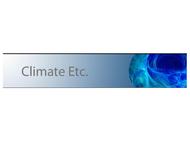Time to Retire the Term “Renewable Energy” from Serious Discussions and Policy Directives: Part II - Highlighted Article
- Posted On:
- Mar 14, 2024 at 6:00 AM
- Category
- Energy Policy, Climate Change
From: Climate Etc.
By: Planning Engineer (Russ Schussler)
Date: February 16, 2024
Time to Retire the Term “Renewable Energy” from Serious Discussions and Policy Directives: Part II
“Renewables”: some resources support a healthy grid, other challenge it
The first part of this series discussed some of the shortcomings of the renewable/nonrenewable dichotomy. Renewable generation resources are not necessarily sustainable or environmentally sound and non-renewable options can be clean and highly sustainable. For example, you will find many ardent environmentalist groups strongly opposed to “renewable” biomass generation. Similarly, more and more environmentalists are dropping their objections to “nonrenewable” nuclear power. For those who are concerned with the health of the planet as well as those who want to use the earth for human flourishing the renewable/nonrenewable dichotomy is losing relevance. Referring generally to “renewable” and “nonrenewable” resources or structuring policy to favor renewable does more harm than good as we face the complicate challenges ahead in maintain an adequate electric power supply in an environmentally responsible manner.
This posting examines the impacts of various generation alternatives s on the power system and the electric grid. Renewable resources do not have a general impact on the grid; impacts vary by resource type. The various renewable resources alternatives available today differ greatly in how they impact the grid and should not be clustered. Hydro resources with storage for example, work well to support the electric grid. In fact, it may be the best resource available considering the varied needs of the major grids. Demanding loads that stress the system are often best located near hydro resources. Other “renewable” resources to a greater or lesser extent may present challenges to the operation of the grid and grid reliability. In assessing the challenges of changing resources, reports that a particular grid is operating with 80% renewables may be impressive or virtually meaningless. Of course, a grid can function well depending on 80% hydro resources, or 78% hydro and 2% wind and solar. That’s very different and much less challenging than operating a grid with a penetration level of 40% wind and solar. Let’ look at some of the important characteristics of generation resources and how they differ among resource types. (continue reading)
Time to Retire the Term “Renewable Energy” from Serious Discussions and Policy Directives: Part II


